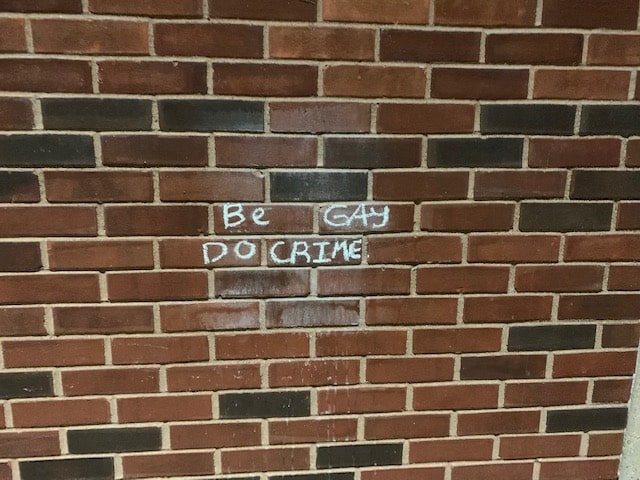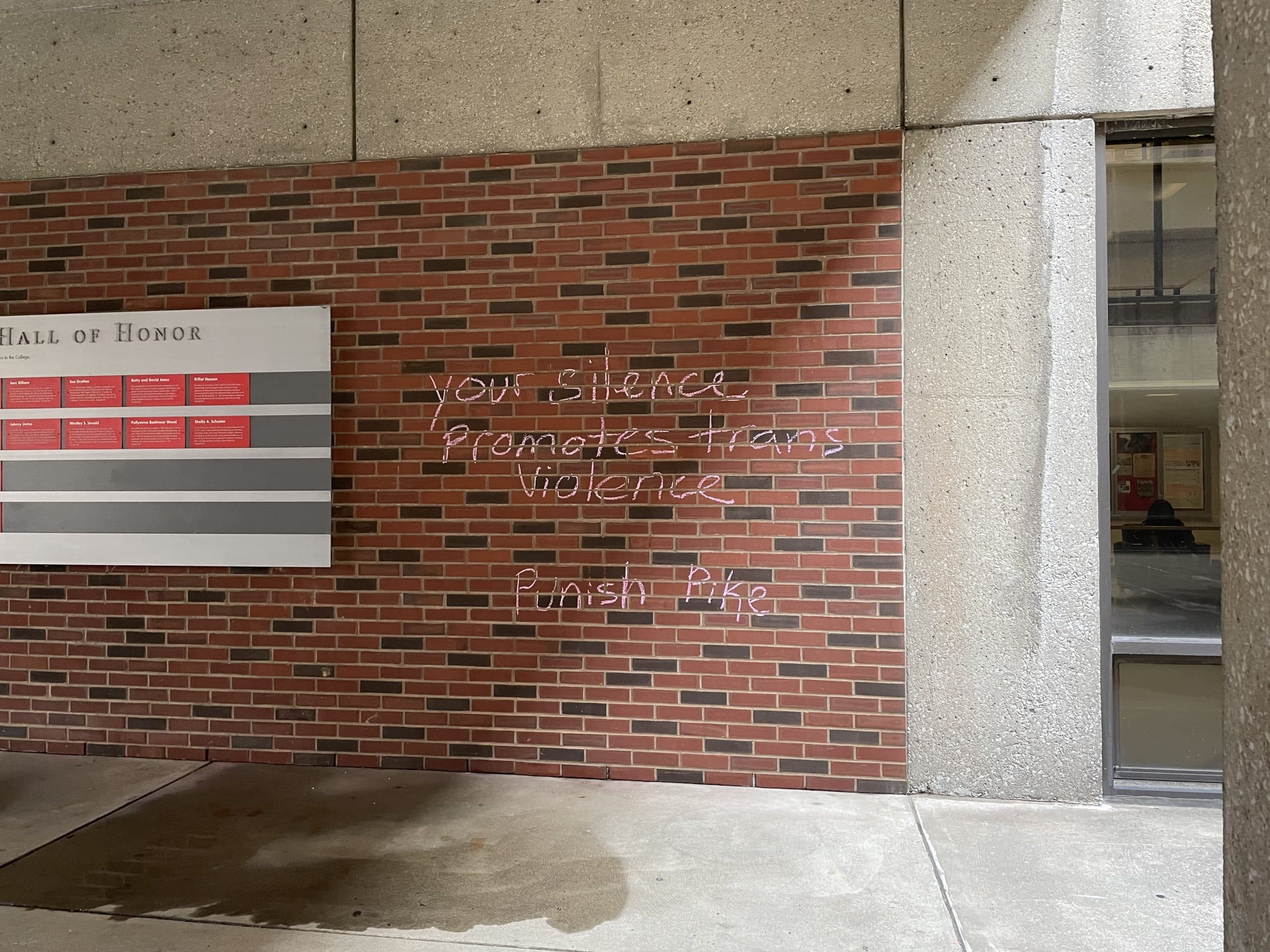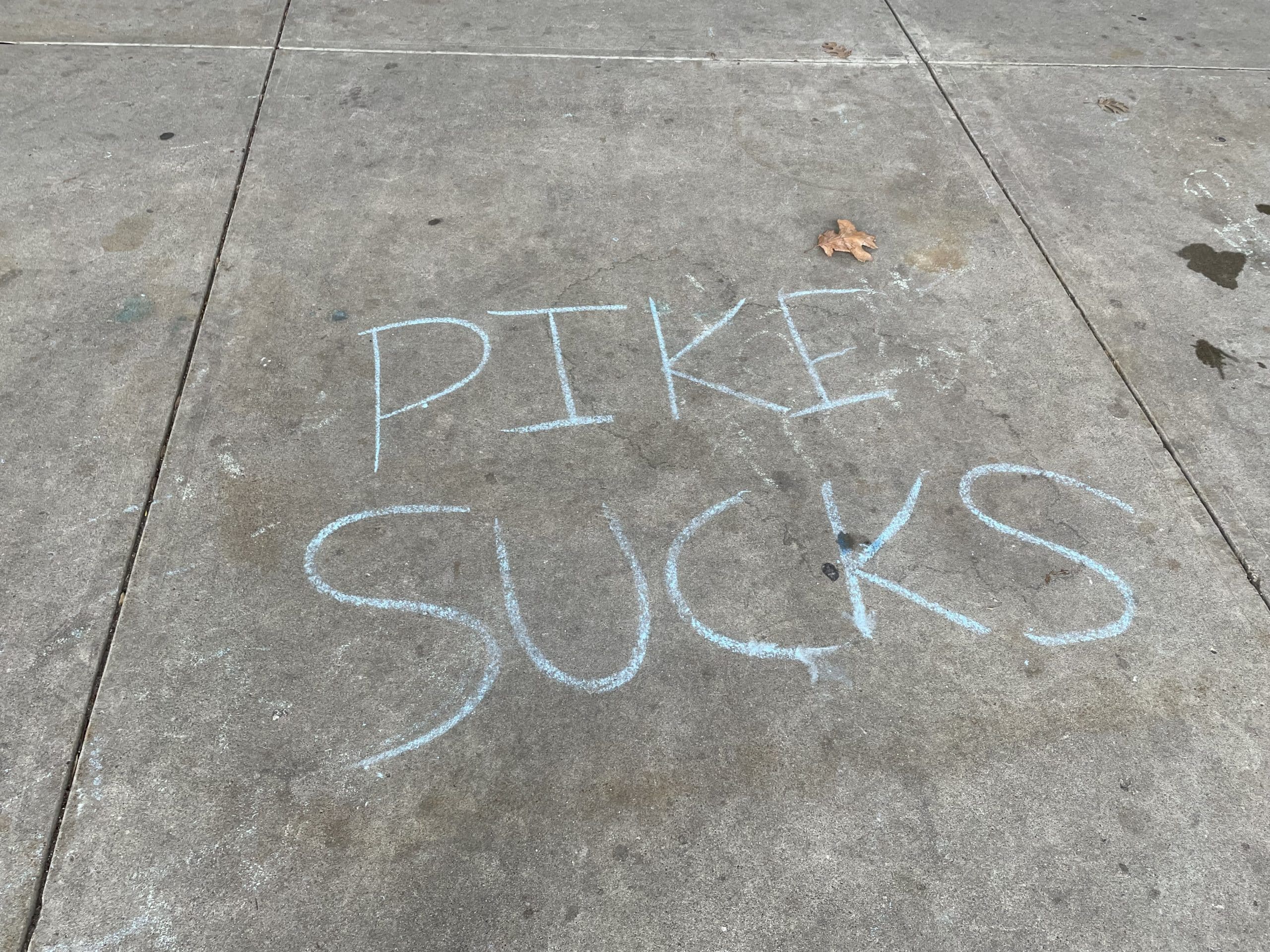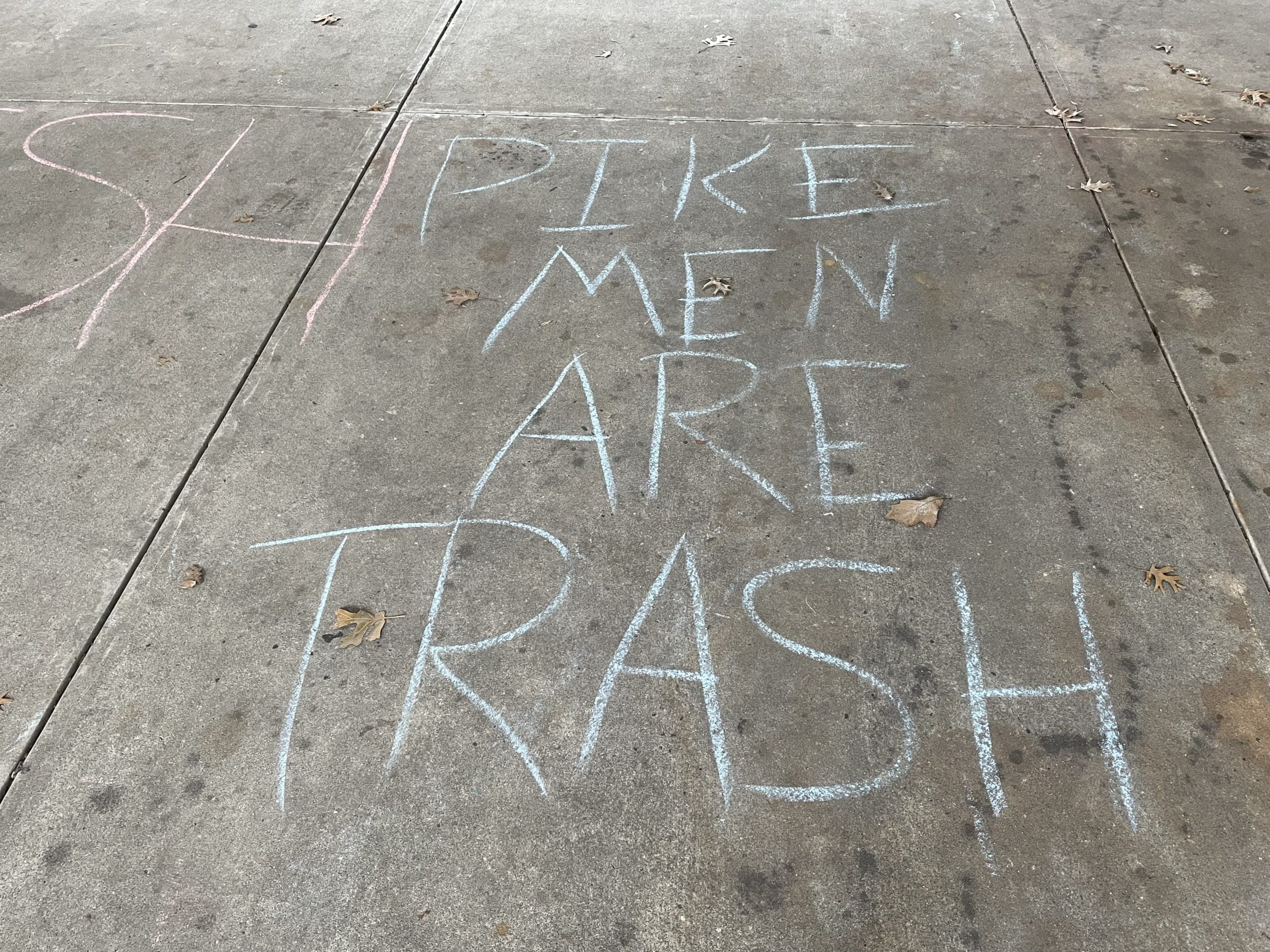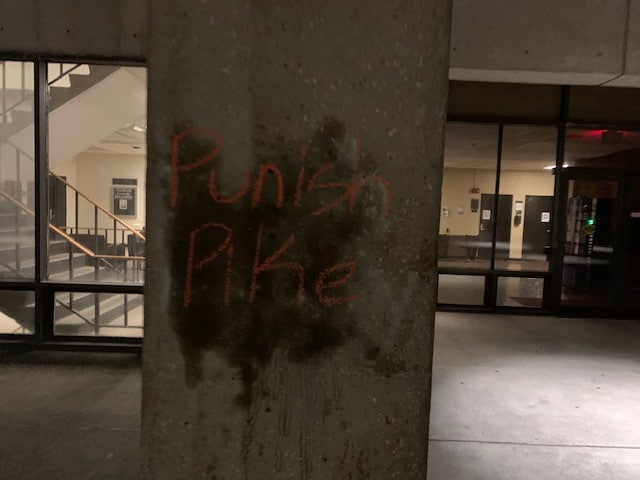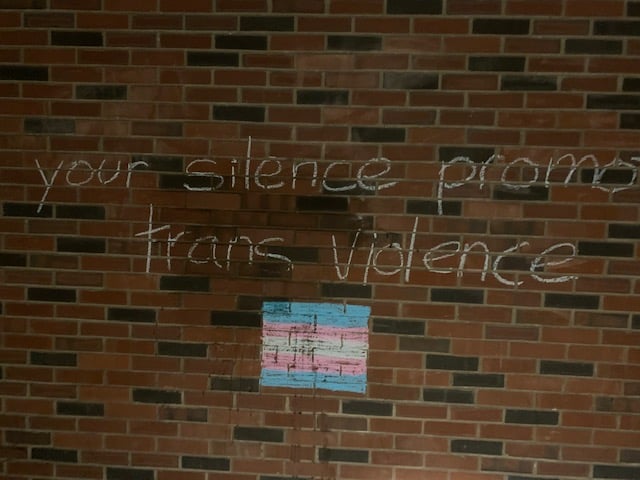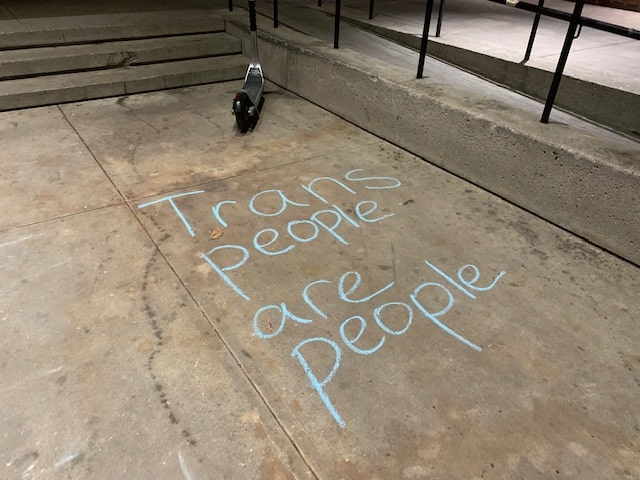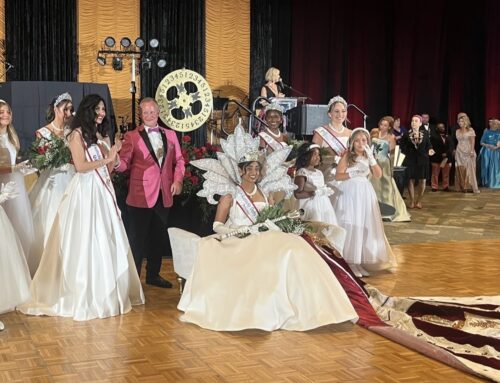By Tate Luckey and Joe Wilson
On Feb. 27 the University of Louisville released a statement addressing their awareness of two incidents in which “transgender students were treated in a way that did not uphold our commitment as a community of care.”
Among the universal scrutiny in comments, many were unaware of what exactly led to such an abrupt post.
It started with, among other things, a TikTok.
Tiktok, Chalk, and Incident #1
On Jan. 15, a TikTok circulated the platform where transgender student, Donna Jo Mullins, was at an off-campus fraternity party hosted by Pi Kappa Alpha, or Pike. Several members verbally assaulted her, calling her a mixture of insults and misgendering her, stating that “he has no chance in hell of getting in this damn party.”
Four days later, on Jan. 19, the Louisville Panhellenic Association posted a statement on their Instagram alluding to the incident. On the 28th, they make another post on behalf Mullins, asking for privacy and support during this time.
At around the same time, a group of students decided to write chalk messages around campus verbally addressing the issue with Pi Kappa Alpha, and word spread fast. Fast enough that even the r/Louisville subreddit was curious of the issue.
On Feb. 7, SAGA, or The Sexuality and Gender Alliance of the University of Louisville, released a statement condemning the University’s handling of the issue.
The University of Lousiville is a 7- time Higher Education Excellence in Diversity Award recipient, and as of 2020 is one of 30 college campuses to score 5/5 stars on the Campus Pride Index.
The SGA Town Hall, and Incident #2
In an effort to amplify the voices of those they felt were minimized, a group of senators from the Student Government Association signed off on a letter they drafted on the night of Feb. 13. One day later, members of the University Administration received this letter from Noah Young, Speaker of the U of L SGA Senate:
University Administration,
As Speaker of the Student Government Association Senate, I am writing this letter to report that the University of Louisville is facing a crisis. The convergence of a multitude of issues has brought this student body to a standstill. The recent harassment and bigotry towards members of our community has spurred concern and persistent unrest. The initial event of concern has been further exacerbated by the Universities action against student speech. Chalking, as outlined in our student code of conduct, is protected speech. When tasked with addressing the cultural issues of the day, speech is our primary tool for remedy. In this instance, the University has failed to empower students to address the conflict pertinent to our campus.
In conversation with leaders, students, and faculty on campus, I believe that a part of the remedy to this dire situation requires the leaders of the University to engage in the strenuous work of dialogue. I am a firm believer in striking while the iron is hot. With the renewed vision of the University of Louisville on the horizon, we need our leaders to act. I, as well as my cosigners, are inviting you to the Student Government Association Senate meeting on Tuesday, February 21st, 2023, at 7:30 PM in the PNC Horn Auditorium to engage in dialogue focusing on the state of our campus community.
At the meeting, many shared stories of bigotry with the SGA Top 4, Student Senate, and the members of the administration who attended, including Dean of Students Michael Mardis, ULPD Chief Steve Green, and Lee Gill, the Vice President for Diversity, Equity and Inclusion.
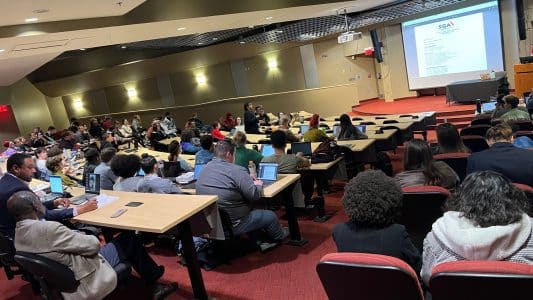
A packed PNC Horn Auditorium at the U of L College of Business
“This is a continuous issue. I think most of us would want accountability. We want people held accountable for the hate and harm that this is being thrown upon certain people at our school,” one student pleaded. “I shouldn’t feel unsafe walking home from campus, or being chased by officers. That’s what we want.”
Another student who spoke up said they were stalked by a ULPD officer for attempting to chalk around campus.
“On Feb. 8th, I was hunted by an officer of the ULPD. That day I had been going to speak with the people at the Cultural and Equity Center; I had already been filmed for chalking previously and I wanted to figure out what was wrong. I had stopped to write ‘trans rights’ on the sidewalk in bright yellow chalk, and a man approached me claiming to be ‘head of groundskeeping,'” they said.
The individual said he just wanted to talk, but the student said that they were headed to class and were busy, and began walking along the opposite sidewalk. When this head of groundskeeping was speaking into his walkie-talkie, and following, the student quickly ran to the Cultural Center.
“I quickly hurried into the Cultural Center and ducked inside; upon speaking at the person at the front desk, I saw the man in a reflection in the sign, and told them I was being followed,” they said.
After explaining their situation to the front desk worker, the student noticed a ULPD officer come in and ducked out of sight. The officer described an individual in a red beanie with blonde hair (the same as the student was wearing), and when asked why they were looking for said individual, did not answer.
In response to such testimony and in an effort to hold Pike accountable, the SGA passed a resolution that night recommending the suspension of Pike’s RSO charter for one year. It has to be sent to the Student Organization Advisory Board, who need to make their recommendation by the next Senate meeting, on March 7th. The SGA is set to take the final vote on whether to suspend Pike then, too.
So Who Removed the Chalk?
It was by direction of the Dean of Students that the graffiti be removed off “building entry/exit points, spaces, walls, and in some cases sidewalks,” Sajid Mian, Assistant Vice President for Facilitates Management, said in a Feb. 8 email.
Richard Serfass, Director of Physical Plant Maintenance, said in an email later that day that while he has no issue with students peacefully protesting, as long as they follow the chalking policy. What makes this different, however, is the wording of the signage itself.
“Most of them have verbiage that do not promote a positive image and I think most of us would consider most of them unacceptable… They are not just writing the words ‘trans rights’,” he wrote. Attached below are some images of the erased messaging.
- (1) “Erasing the chalk wont stop me :)”
- (2) “your silence promotes trans violence. Punish Pike”
- (3) “UofL PROTECTS BIGOTS”
- (4) “PIKE SUCKS”
- (5) “PIKE MEN ARE TRASH”
- (6) “Protect trans students”
- (7) “Protect students not ABUSERS”
- (8) “Punish Pike”
- (9) “Punish Pike”
- (10) “Your silence promotes trans violence”
- (11) “U of L Protects bigots”
- (12) “U of L will not protect you”
- (13) “Trans people are people”
- (14) “Be Gay Do Crime”
The chalking policy is defined below,
Chalking is permitted only on sidewalks using light colored chalk in open, horizontal areas to allow for eventual removal by rainfall. Do not chalk under an overhang on the buildings, the side of a building or under ramps. Chalking is not permitted directly in front of doorways or on stairs to the building. Chalking is also not permitted on the sidewalks around the Speed Art Museum and within 50 feet of any of the Residence Halls. The use of industrial chalk, spray chalk or paint on sidewalks or buildings is prohibited.
This led many within SGA and a handful of attendees at the town hall to wonder if the university is censuring their expression of frustration surrounding the handling of both incidents. Of the images listed, numbers 6, 7, and 8 do not violate the chalking policy.
“This is not about the sidewalk chalk. This is about the pervasiveness and prevalence of transphobia on our campus. There has been a targeted erasure in trans messages in chalk and of trans voices on campus,” a student at the town hall read aloud.
Communication Since
As of Feb. 23, Pike posted on Instagram a statement that the University has “zero active or pending conduct hearings related to [the] organization.”
On Tuesday, Feb. 28, the U of L Trans Rights Alliance is hosting a group chalking event at Grawemeyer Hall at 4:30 p.m.
File Photos // The Louisville Cardinal //

